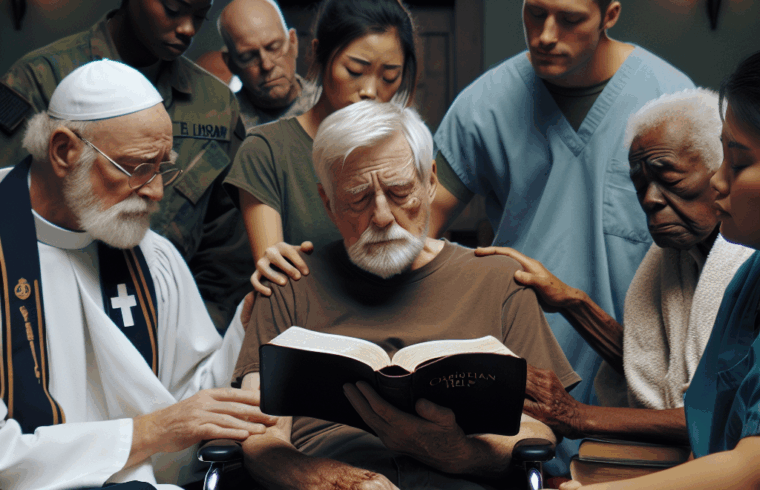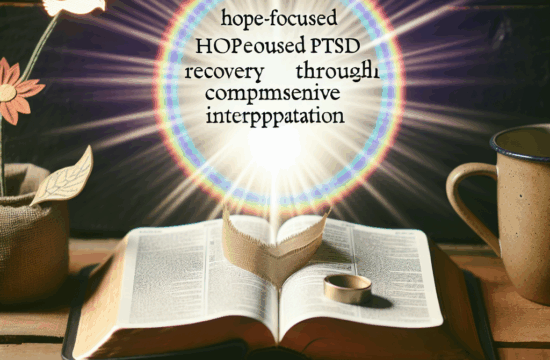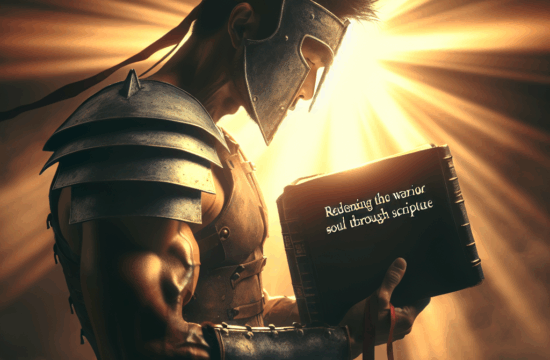==> Thank you for reading this post! Click Here If you are looking for support and Victory over PTSD.
Understanding Emotional Pain
What is Emotional Pain?
Emotional pain, also known as psychological pain, is something that a lot of us can face at different points in life. For veterans, this pain can stem from experiences that are unique to military service—things like loss, trauma, or even just the readjustment to civilian life. Acknowledging that emotional pain is real and powerful is the first step in overcoming it. It’s okay to not be okay, and recognizing that is crucial.
I remember my own struggles and how the weight of my experiences sometimes felt like the heaviest backpack. The first step for me was to ditch the stigma—understanding that seeking help is a strength, not a weakness. We all go through tough times, and that’s perfectly normal.
Emotional pain manifests in various ways, and it’s important to look for signs like sadness, anxiety, or withdrawal from loved ones. Being aware of these emotions can guide us toward healing. Trust me, tackling these feelings head-on is way more effective than trying to shove them under the rug.
Recognizing the Signs
Sometimes the hardest part is admitting to ourselves that we’re struggling. The signs of emotional pain can sometimes be subtle—irritability, sleepless nights, or a general lack of joy. I’ve been there, and it can feel like an endless cycle. But recognizing these signs is pivotal; it means we’re ready to address the issues head-on.
For me, recognizing when I was becoming easily agitated or withdrawing from friends was a telltale sign that I needed to pause and assess my mental state. It requires honesty with ourselves, and that’s not always easy, but it’s crucial.
There are also physical manifestations. Stress can really take a toll on our bodies. I used to get stomach aches and headaches all the time when I was feeling super low. It’s wild how our emotional health connects to our physical health. Pay attention to what your body is telling you—it often knows before we do.
The Importance of Self-Awareness
Self-awareness is key to understanding our emotional turmoil. When I took the time to reflect on my feelings, journaling helped me articulate my thoughts. It was like having a conversation with myself! This process of self-discovery laid the groundwork for my healing journey.
Self-awareness also leads to empathy. When you understand that you’re not alone, you begin to connect with others who may be going through the same thing. Sharing experiences with fellow veterans can be a huge relief. It’s amazing how much we can help each other just by being open.
Finally, being self-aware gives us the power to reclaim our lives. Once I recognized my emotional pain, I started to make changes—small ones at first, but they added up. Each step forward, no matter how small, became a brick in the foundation of my recovery.
Finding Support Systems
Connecting with Fellow Veterans
Sometimes, the best support comes from those who truly understand what you’re going through—fellow veterans. I found that sharing my journey with others who’ve been in the same boat helped lighten my load. These are people who get it, who know the battles we face, even if they aren’t the same for everyone.
Local veteran support groups can be a great resource. There’s something pretty comforting about being surrounded by folks who’ve walked similar paths. It’s about creating a community where we can lean on each other when times get tough.
Plus, these connections can lead to wonderful friendships. Some of my closest pals today are guys I met in those groups, and I know we’ll always have each other’s backs. Finding enduring friendships can be one of the most unexpected joys on this journey.
Professional Help Options
There’s absolutely no shame in seeking professional help—trust me! I was hesitant at first, thinking I could handle everything on my own. But when I finally took the plunge to see a therapist, it was like opening a floodgate of support. Finding someone who understands the veteran experience is crucial.
Therapists can offer insights and tools to help navigate the stormy waters of emotional pain. Cognitive Behavioral Therapy (CBT), for instance, helped me retrain some of the not-so-healthy thought patterns I’d built up over the years.
If therapy isn’t accessible, there are hotlines and online support groups available as well. I’ve found solace in online communities where veterans share their experiences, creating a massive web of support. Remember, it’s about finding the right fit for you, so don’t hesitate to explore your options.
Role of Faith in Healing
For many veterans, faith can be a cornerstone of recovery. I found solace in my faith, leaning on the power of prayer and scripture during some of my darkest moments. There’s something comforting about knowing you’re not alone in your struggles. Faith can guide you to a deeper understanding of your emotions and help you navigate through them.
Get Support and Help with Recovery! Visit us for more Information and Support
Talking to a pastor or spiritual mentor can also provide a layer of support that traditional therapies might not touch. It’s a whole other side of healing that brings hope and strength. I’ve had some of my most profound conversations in church, which helped me contextualize my pain in a more positive light.
Faith-based groups often have specialized resources for veterans, creating a unique blend of spiritual and emotional support. This dual approach can be immensely beneficial in rebuilding our lives, fostering an environment of empathy and understanding.
Moving Forward with Hope
Establishing Healthy Routines
Routine can be a game-play in combating emotional pain. When I established a daily routine filled with activities that nourished my mind and body, I started to feel a sense of purpose. Simple things like morning walks, reading, or even practicing gratitude made a massive difference.
Physical health ties directly into emotional health, so incorporating exercise into your routine can be uplifting. I started hitting the gym with a buddy, and not only did it help my physical state, but it also served as a social outlet where we could vent and laugh.
Weekly rituals, like attending a class or even cooking a new recipe, can inject joy into our lives. The simple act of having something to look forward to can shift the focus away from emotional pain and help build a positive mindset.
Setting Achievable Goals
Setting small, achievable goals can provide that much-needed sense of accomplishment. This was something I learned along my way. Start with something easy—a quick workout or finishing a book you’ve started. These little wins build momentum that propels us forward.
As you achieve these smaller goals, it’s encouraging to move onto bigger milestones. I found that celebrating every little victory turned my mindset from a search for hope to actively embracing it. Every step counts, regardless of how small!
Writing down my goals made a huge difference. It’s not just about thinking them but seeing them in black and white. Trust me, visual reminders can be incredibly motivating!
Maintaining a Positive Mindset
A positive mindset can be a challenge to maintain, especially in tough times. But I’ve learned that it’s crucial to seek positivity in our lives, whether through supportive friends, uplifting music, or inspirational quotes. These little sparks can light the path to healing.
Practicing mindfulness and meditation can also your grounding techniques. When I first started, it felt strange, but gradually it became a powerful tool in my arsenal for managing stress. Simply taking a moment to focus on breathing can transform a chaotic state of mind into a calmer, more centered one.
Surrounding ourselves with positivity is essential. Limit time with negative influences—be it news, social media, or pessimistic people. Instead, invest time in activities and relationships that foster hope and joy. It’s a conscious effort, but the rewards are tremendous.
FAQs
1. What are some signs that a veteran may be experiencing emotional pain?
Signs may include changes in mood, increased irritability, withdrawal from social activities, changes in sleep patterns, and physical symptoms like headaches or stomach aches.
2. How can fellow veterans support each other in dealing with emotional pain?
Sharing personal experiences, forming support groups, or simply being there to listen can make a significant difference. It’s about creating an atmosphere of understanding and empathy.
3. Is professional help necessary for veterans in emotional pain?
Professional help isn’t always necessary, but it can be incredibly beneficial. Therapists can provide tools and coping strategies that are difficult to achieve alone.
4. How does faith play a role in healing from emotional pain?
Faith can offer comfort, guidance, and a sense of community. Many find strength in prayer and spiritual teachings that provide a framework for understanding their pain.
5. What practical steps can veterans take to move forward from emotional pain?
Establishing healthy routines, setting achievable goals, and surrounding yourself with positivity can contribute to healing. It’s about taking those first little steps toward a brighter future.













